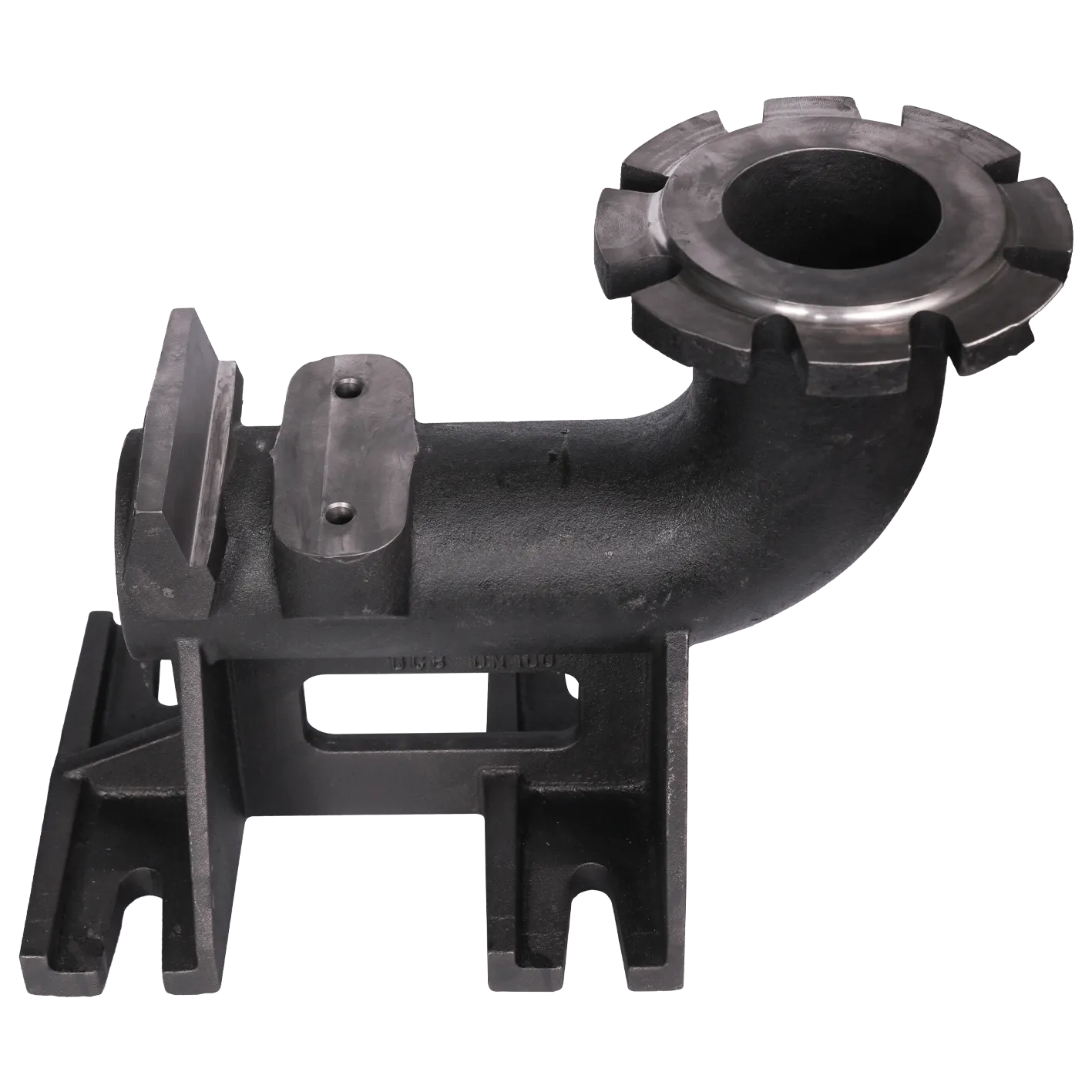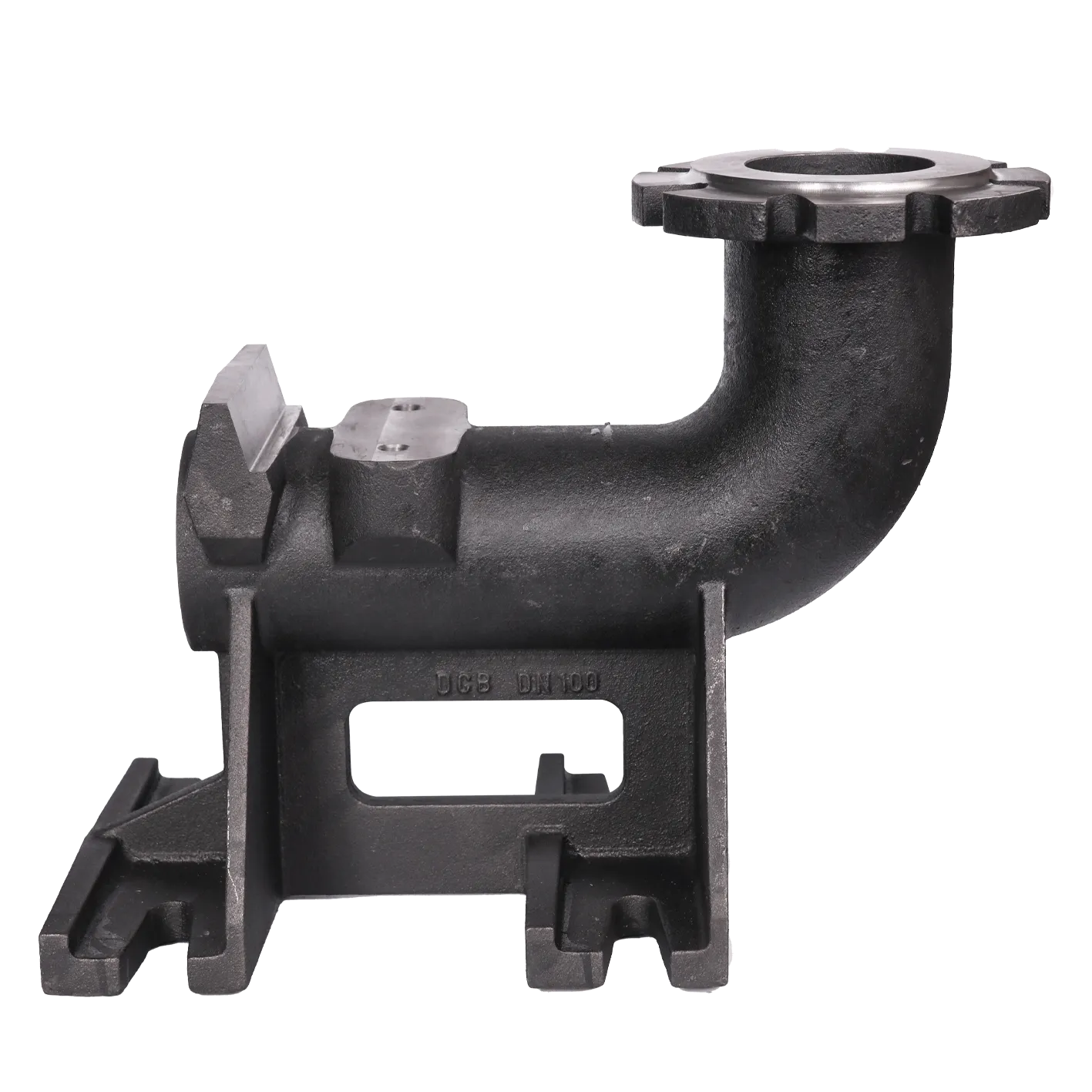Handy, Mobiltelefon:+86-311-808-126-83
Email:info@ydcastings.com
Durable, Efficient Impeller for Optimal Pump Performance
The Critical Role of the Laufrad in Modern Pumping Systems
Der Laufrad stands as the heart of any centrifugal pump, converting rotational energy into kinetic energy to move fluids. Its design, material, and manufacturing precision directly dictate a pump's efficiency, reliability, and service life. From essential water supply & drainage systems to the demanding environments of petrochemical and metallurgy industries, the integrity of the Laufrad is paramount for optimal fluid transfer. This detailed exploration delves into the technical intricacies, application diversity, and strategic importance of this fundamental component in B2B industrial contexts.
Evolving Industry Trends in Pump Impeller Technology
The landscape of fluid dynamics and pump technology is constantly evolving, driven by stringent energy efficiency regulations, the need for enhanced corrosion resistance, and advancements in material science. Current trends in Laufrad design focus heavily on computational fluid dynamics (CFD) for optimized hydraulic performance, leading to geometries that minimize turbulence and maximize head and flow while reducing energy consumption. Manufacturers are increasingly adopting advanced alloys and composite materials to combat aggressive media and high-temperature applications, extending the service life of the impeller on pump components significantly. Moreover, the demand for customizable solutions is rising, allowing for precise tailoring of pumpe impeller characteristics to meet unique operational requirements, thereby improving overall system efficiency and reducing downtime across various industrial sectors.
Precision Manufacturing Process of Impellers
The production of a high-quality water pump impeller involves a meticulous multi-stage process, ensuring both dimensional accuracy and material integrity. This process is crucial for the reliability and efficiency of the entire pumping system, impacting everything from energy consumption to maintenance schedules.
Impeller Manufacturing Process Flow
- Material Selection & Preparation: Based on application (e.g., corrosive fluids, high temperatures), materials like ductile iron, stainless steel (304, 316, duplex), bronze, or specialized alloys are chosen. Raw materials undergo rigorous inspection for chemical composition and mechanical properties.
-
Casting or Forging:
- Casting: For complex geometries, sand casting or investment casting methods are employed. This involves creating a mold from the Laufrad design, pouring molten metal, and allowing it to solidify. This is common for many pump applications.
- Forging: For applications requiring superior strength and fatigue resistance, forging processes are used. This involves shaping metal through localized compressive forces using hammers or presses.
- Heat Treatment: Post-casting or forging, components undergo specific heat treatments (e.g., annealing, quenching, tempering) to optimize material properties such as hardness, ductility, and resistance to wear and corrosion.
- CNC Machining: Precision machining is critical to achieve the exact dimensions, surface finish, and hydraulic profiles. Multi-axis CNC machines are used to mill the vanes, bore the hub, and finish the cap ends, ensuring tight tolerances for optimal performance and efficiency.
- Static and Dynamic Balancing: Unbalanced impellers lead to vibration, noise, and premature bearing and seal failure. Static balancing is performed initially, followed by dynamic balancing using specialized equipment to ensure smooth, vibration-free operation at high speeds, critical for the overall longevity of the pump casing and shaft.
- Non-Destructive Testing (NDT) & Quality Control: Impellers undergo various NDT methods like ultrasonic testing, radiographic testing, and dye penetrant inspection to detect internal flaws, cracks, or material inhomogeneities. Dimensional checks are performed using CMM (Coordinate Measuring Machine) to ensure adherence to design specifications.
- Surface Treatment (Optional): Depending on the application, additional surface treatments such as coating (e.g., ceramic, epoxy), polishing, or passivation may be applied to enhance corrosion resistance, wear resistance, or hydraulic smoothness.
- Final Inspection & Certification: Each Laufrad is subjected to a final comprehensive inspection. Adherence to international standards such as ISO 9906 (for hydraulic performance testing) and material specifications (e.g., ASTM, ANSI) is verified, and documentation is provided.

This rigorous process ensures that each Laufrad delivers unparalleled performance, meeting demanding industry standards and ensuring a long service life under various operational conditions.
Key Technical Specifications and Parameters
Selecting the correct Laufrad requires a thorough understanding of its technical parameters. These specifications dictate the performance envelope and suitability for specific applications.
| Parameter | Description | Typical Range/Value |
|---|---|---|
| Type | Open, Semi-Open, Closed (Shrouded) | Varies by fluid viscosity, solids content |
| Material | Corrosion & wear resistance | Ductile Iron, Cast Steel, Stainless Steels (304, 316, Duplex), Bronze, Ni-Hard, Super Alloys |
| Diameter | Outer diameter of the impeller | 50 mm to 2000+ mm |
| Number of Vanes | Affects flow, head, and solids handling | Typically 2 to 8, depending on design |
| Blade Angle | Angle of vanes relative to rotation | Forward, Backward, Radial (specific degrees) |
| Hydraulic Efficiency | Ratio of output power to input power (fluid work vs. mechanical work) | Up to 85-90% for well-designed units |
| NPSHr (Net Positive Suction Head Required) | Minimum pressure at the suction port to prevent cavitation | Specific to pump design and flow rate (e.g., 2-10 meters) |
| Surface Roughness | Smoothness of the impeller surfaces | Typically Ra 3.2 µm or finer for efficiency |
Diverse Application Scenarios and Technical Advantages
The versatility of the Laufrad allows its deployment across a multitude of industries, each with unique challenges that specialized Laufrad designs address.
- Petrochemical Industry: Demands robust impellers resistant to aggressive chemicals, high temperatures, and erosive particles. Advantages include superior corrosion resistance (e.g., using duplex stainless steels) and extended service life under continuous operation, minimizing costly downtime.
- Metallurgy & Mining: Handles abrasive slurries with high solids content. Specialized impellers feature thick vanes and wear-resistant materials like Ni-Hard or rubber lining, offering exceptional wear resistance and reduced maintenance frequency.
- Water Supply & Drainage: Focuses on energy efficiency and reliable long-term operation for large volumes of water. Advanced hydraulic designs ensure significant energy savings and high flow rates, crucial for municipal infrastructure.
- HVAC & Building Services: Requires quiet operation and consistent performance for circulating water or refrigerants. Precision-balanced impellers contribute to reduced vibration and noise levels, enhancing system comfort and efficiency.

The ability of a specific Laufrad design to excel in these varied scenarios underscores the importance of tailored engineering and material selection for optimal pump performance and overall system longevity.
Vendor Comparison and Customization Solutions
Choosing the right Laufrad vendor is as critical as the product itself. Reputable manufacturers differentiate themselves through a combination of engineering prowess, material expertise, and comprehensive support services.
| Criterion | Description | Impact on Project |
|---|---|---|
| Manufacturing Expertise | Experience in casting, forging, CNC machining, and balancing. | Ensures dimensional accuracy, surface finish, and operational stability. |
| Material Science Knowledge | Ability to recommend and work with diverse alloys for specific fluid properties. | Optimizes corrosion, erosion, and temperature resistance, extending service life. |
| Certifications & Standards | Adherence to ISO 9001, API standards, and industry-specific certifications. | Guarantees product quality, reliability, and regulatory compliance. |
| Customization Capabilities | Capacity for bespoke Laufrad designs to meet unique hydraulic requirements. | Ensures optimized pump performance for specialized applications and maximized energy efficiency. |
| After-Sales Support | Technical assistance, spare parts availability, and troubleshooting services. | Minimizes downtime, extends equipment life, and reduces total cost of ownership. |
Leading manufacturers often excel in offering customized Laufrad solutions. This includes finite element analysis (FEA) to predict stress distribution and CFD for hydraulic optimization, ensuring that the final pumpe impeller is perfectly matched to the specific pump and fluid characteristics. For instance, a bespoke design might include altered vane geometry to handle higher concentrations of solids or modified cap ends for improved suction capabilities. This collaborative approach between client and vendor often yields the most efficient and durable pumping solutions.
Real-World Application Case Studies
The impact of a well-engineered Laufrad is best illustrated through successful applications.
-
Case Study 1: Municipal Water Treatment Plant
A major municipal water treatment plant faced increasing energy costs due to aging pumps with inefficient water pump impeller designs. After comprehensive hydraulic analysis, custom-designed closed impellers made from high-grade ductile iron with optimized vane angles were installed. The result was a documented 15% reduction in energy consumption for the primary transfer pumps, translating to significant annual operational savings and a quick return on investment. The improved hydraulic profile also reduced cavitation, extending the service life of the entire impeller on pump assembly.
-
Case Study 2: Chemical Processing Facility
A chemical plant handling highly corrosive and abrasive slurries struggled with frequent Laufrad failures, leading to costly unscheduled downtime. A new vendor provided impellers cast from a specialized duplex stainless steel (2205), known for its exceptional resistance to both corrosion and erosion, combined with a semi-open design to better handle solids. Post-installation, the MTBF (Mean Time Between Failures) increased by over 200%, dramatically reducing maintenance costs and increasing plant throughput. This demonstrated the critical role of material science in extreme industrial applications.
Trust and Support: FAQs, Lead Time, Warranty, and Customer Service
Frequently Asked Questions (FAQs)
Q1: How do I select the right material for my Laufrad?
A1: Material selection depends heavily on the fluid properties (corrosive, abrasive), temperature, pressure, and desired service life. Consult with our engineers to match the ideal alloy or composite to your specific application requirements.
Q2: What is the typical lead time for custom Laufrad orders?
A2: Lead times vary based on design complexity, material availability, and current production schedules. Standard designs typically range from 4-6 weeks, while highly customized or complex projects may require 8-12 weeks. We provide detailed timelines upon order confirmation.
Q3: How important is dynamic balancing for a pump impeller?
A3: Dynamic balancing is critically important. Improperly balanced impellers lead to excessive vibration, noise, premature wear of bearings and seals, and ultimately, pump failure. All our impellers undergo rigorous dynamic balancing to ISO 1940-1 standards to ensure smooth and reliable operation.
Lead Time & Fulfillment
Our robust production planning and supply chain management ensure efficient order fulfillment. We maintain strong relationships with raw material suppliers and optimize our manufacturing schedules to meet project deadlines. For urgent requirements, expedited production options may be available upon request.
Warranty Commitments
We stand behind the quality of our impellers with a comprehensive warranty against manufacturing defects and material failures under normal operating conditions. Our standard warranty typically covers 12 to 24 months from the date of installation or 18 to 30 months from shipment, whichever comes first. Specific terms are detailed in our product documentation.
Dedicated Customer Support
Our commitment extends beyond delivery. We offer expert technical support, including installation guidance, troubleshooting, and spare parts assistance. Our team of experienced engineers is available to provide detailed consultations to ensure optimal performance and longevity of your pumping systems.
Contact Us: For inquiries regarding Laufrad solutions, customization, or support, please visit our website or reach out directly to our sales and technical teams.
Conclusion
Der Laufrad is undeniably the linchpin of centrifugal pump efficiency and reliability. Its advanced design, precise manufacturing, and appropriate material selection are critical for meeting the diverse and demanding requirements of modern industrial applications. By prioritizing quality, customization, and comprehensive technical support, businesses can ensure optimal fluid transfer, achieve significant energy savings, and minimize operational costs.
References
- Gulich, J.F. (2014). Centrifugal Pumps. Springer.
- Karassik, I.J., et al. (2008). Pump Handbook. McGraw-Hill Education.
- ISO 9906:2012. Rotodynamic pumps - Hydraulic performance acceptance tests - Grades 1, 2 and 3. International Organization for Standardization.
-
Materials Used in Manufacturing Cap End Pipe FittingsNachrichtNov.24,2025
-
Material Properties of CF8M CastingNachrichtNov.24,2025
-
How to Inspect Pump Cap Ends for DamageNachrichtNov.21,2025
-
Backward Curved Impeller – Efficient Airflow Solutions for Industry | YD CastingsNachrichtNov.21,2025
-
Automobile Water Pump - Efficient, Quiet, Durable & ElectricNachrichtNov.21,2025
-
Impeller for Pumps – High-Efficiency, Durable, OEM-ReadyNachrichtNov.21,2025











